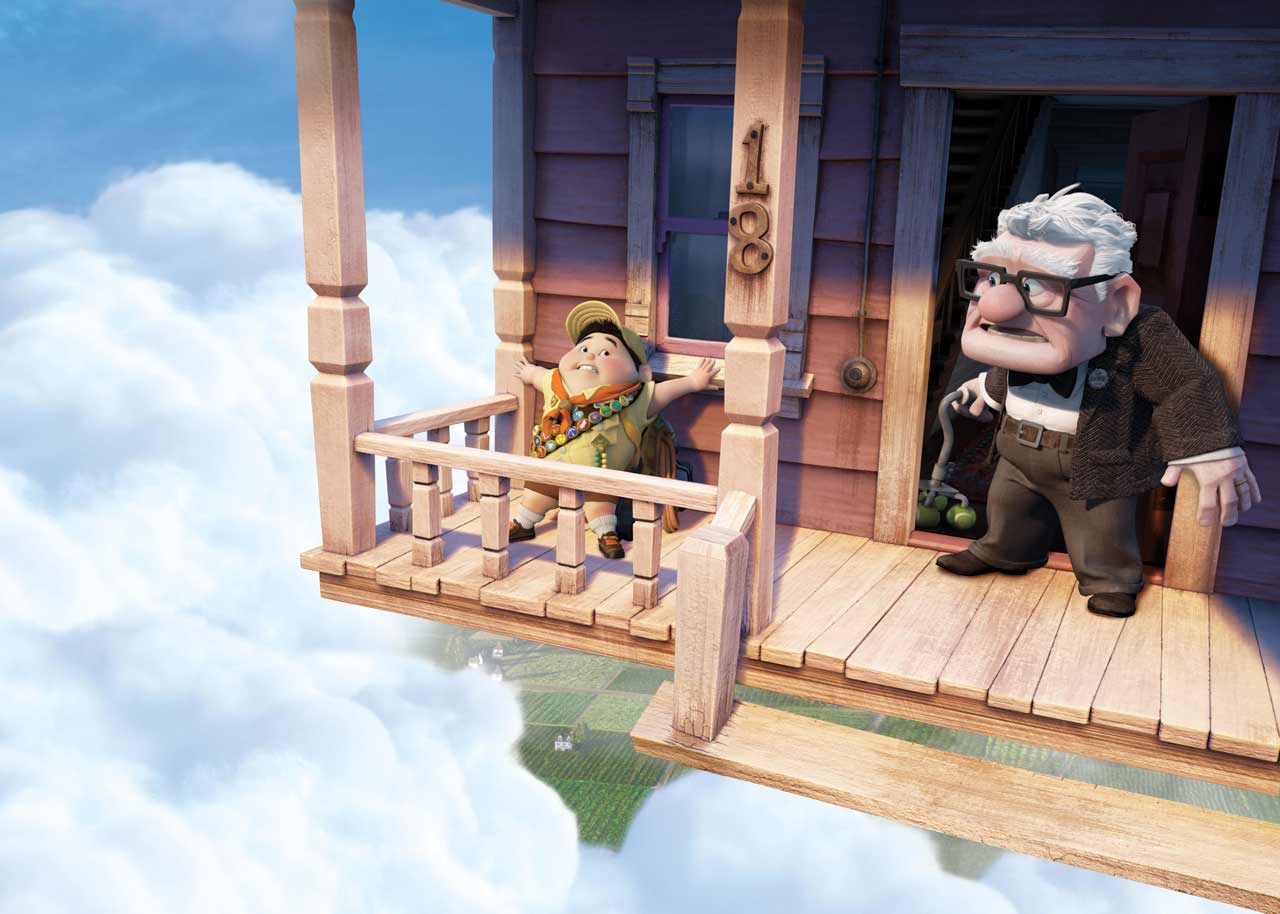Ratatouille
 God bless Pixar for doing it the hard way. There's a new wave of banal, aggressively condescending talking-animal cartoons being shoveled out of the Hollywood CG-image factories these days, but Ratatouille is everything those films aren't and it's nothing that kids raised on lowest-common-denominator cartoon pablum expect. The setting is Paris. The subject is food — good food, in fact, and also the difference between good food and bad. And dramatizing that very unexpected story of the gulf between adequacy and excellence, and our capacity as human beings to recognize and be moved by sublime endeavor, may be the most difficult narrative trick of all.
God bless Pixar for doing it the hard way. There's a new wave of banal, aggressively condescending talking-animal cartoons being shoveled out of the Hollywood CG-image factories these days, but Ratatouille is everything those films aren't and it's nothing that kids raised on lowest-common-denominator cartoon pablum expect. The setting is Paris. The subject is food — good food, in fact, and also the difference between good food and bad. And dramatizing that very unexpected story of the gulf between adequacy and excellence, and our capacity as human beings to recognize and be moved by sublime endeavor, may be the most difficult narrative trick of all.
The protagonist is Remy, a lowly rat with an uncommon interest in the culinary arts. (It's a measure of the level of sophistication here that even that idea -- the delicious notion of a notorious, eats-anything-that-stinks scavenger who happens to be blessed with a cultivated palate -- is funny.) Remy idolizes a famous Parisian chef named Gusteau and pores over a recipe book of his, the misleadingly titled Anyone Can Cook. (Turns out the idea is not so much that just anyone can cook, but that a cook can be anyone or come from anywhere.) Separated one day from his furry rodent family, Remy stumbles across the old chef's namesake, a landmark foodie trap long past its glory days. Unable even to scamper past a bad pot of soup without sniffing the air and thinking on ways to make it scrumptious, Remy's clandestine involvement in the kitchen becomes the secret ingredient that helps the old dump get cooking again.
How this unfolds, exactly, is one of the modern wonders of the cartoon world. Bird's approach mixes marvelous physical slapstick and genuine pathos, with Remy attaching himself to Linguini, a hapless kitchen worker (and unwitting heir to the Gusteau estate) who's at first content to be controlled like a marionette but eventually becomes peevish about the arrangement. The local health inspector becomes a problem, as do some friends and relatives from the old sewer, who can't understand how Remy became such a snob. And then there's old Anton Ego (Peter O'Toole), an aging food critic whose delight in driving a fork through the heart of Gusteau's was partly responsible for the decline in the faded institution's reputation. Unlike the self-assured, insipid blowhard critic imagined by M. Night Shyamalan in Lady in the Water, Ego is depicted as bitter and largely joyless, but also scrupulously honest and absolutely correct. (I suppose an incorruptible critic named Ego functions as Bird's barbed valentine to the profession.) Improbably, his experience turns out to be a linchpin on which the entire film turns.
There's room inside this framework for knockabout action, a touch of sentimentality, and even the whiff of a romance. The elements are balanced so well that nothing feels gratuitous, overplayed or out of place. The animation is breathtaking, even by Pixar standards -- action is laid out in dynamic widescreen compositions, the Parisian cityscape is a luminous tapestry, and the characters are well-tailored, from Linguini's bulbous nose and shock of red hair to the rats, with their layers of soft-looking fur, shape-changing eyes, and ears, and a plump expressiveness in their build and stride. Yes, the level of craftsmanship makes for a highly pleasurable viewing experience -- as does the usual Pixar preponderance of heart.
Ratatouille might not actually exceed the manic invention of Pixar's very best output (it's lacking the intense character logic of Toy Story 2, for instance), but it's almost ridiculously satisfying on its own terms. It's also bold in its message. Where most kiddie pictures nod in the direction of imperative chestnuts like "Believe in yourself" or "Don't betray your friends," Ratatouille is very specifically about inspiration and passion. Like writer/director Brad Bird's previous picture, The Incredibles, Ratatouille makes a case for -- well, not elitism, exactly, but for the idea that some of us are more gifted than others. And it's especially keen on the idea that proper and enthusiastic appreciation of those gifts is one of the things that makes this old world spin around.
I'm not sure why this doesn't play as a massive ego move on the part of Bird and his hypertalented Pixar crew, but Ratatouille feels generous and giving rather than smug or self-satisfied. As the story eases into a denouement that finds its emotional kick in a very unexpected place -- best flashback of the year, no doubt -- the message gels fully with the accomplishment on screen. In its purity, the result felt like a soothing saline bath washing bits of grime from the surface of my dirty brain -- Ratatouille creates a seat-to-screen feedback loop of pure narrative pleasure.
Posted by on June 29, 2024 6:01 PM


